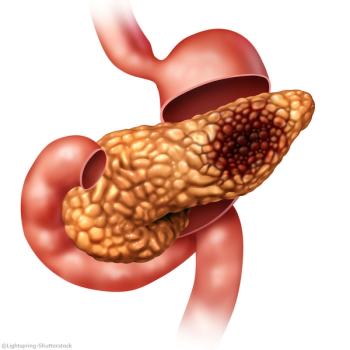
Triptolide May Benefit Some Patients With Pancreatic Cancer
Researchers are reporting they have identified ERCC3 as a new target for pancreatic cancer and demonstrated the effects are extremely strong in a molecularly defined subset of patients.
Researchers are reporting they have identified ERCC3 as a new target for pancreatic cancer and demonstrated the effects are extremely strong in a molecularly defined subset of patients.
They
Triptolide is sold under the brand name Minnelide and it is derived from the medicinal vine Tripterygium wilfordii Hook F, which is also known as the Thunder God Vine. It has been used for centuries in traditional Chinese medicine to treat a host of disorders. It is known to have anti-inflammatory and immunosuppressive activities, and may have potent antitumor properties.
“We found that a subset of MYC-amplified carcinomas are exquisitely sensitive to the drug,” said senior study author Igor Astsaturov, MD, PhD, medical oncologist at Fox Chase Cancer Center, Philadelphia, in a
The investigators developed a panel of new physiological models in which they expanded surgical pancreatic ductal adenocarcinomas (PDAC) tumor samples using short-term culture conditional reprogramming with the Rho kinase inhibitor Y-27632. This enabled them to create matched patient-derived xenografts (PDX). These were then evaluated for sensitivity to a large panel of clinical agents. The researchers found that triptolide was the most consistently effective in causing prolonged, complete regression in multiple PDX models.
Dr. Astsaturov said there are a very limited number of treatment options for these patients. He and his colleagues report that even when patients are picked up prior to metastasis, PDAC has an extremely high mortality rate and there is an urgent need for new targeted therapies.
In this current study, triptolide was most consistently effective in vitro and in vivo causing prolonged complete regression in multiple PDX models resistant to standard PDAC therapies. The researchers reported that triptolide was found to have superior activity in MYC-amplified PDX models. In addition, it elicited a rapid and profound depletion of the oncoprotein MYC, which is a transcriptional regulator. Expression of ERCC3 and MYC was interdependent in PDACs, and resistance to triptolide was associated with elevated ERCC3 and MYC expression.
Newsletter
Stay up to date on recent advances in the multidisciplinary approach to cancer.



































